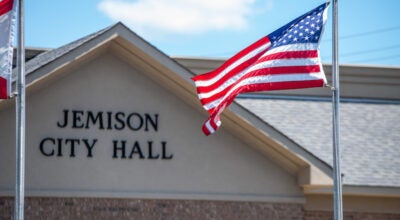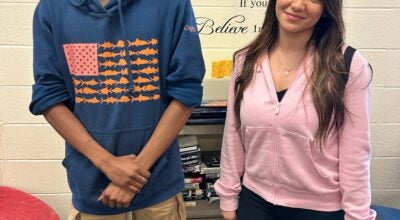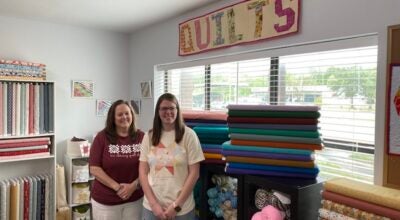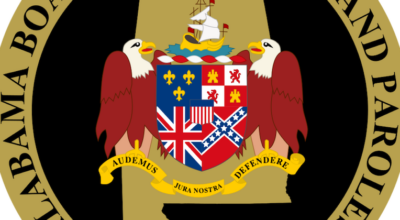Local native, UK professsor named ‘Legend of Entomology’
Published 2:35 pm Monday, December 15, 2014
By Katie Pratt | The University of Kentucky
A Chilton County native and longtime faculty member in the University of Kentucky College of Agriculture, Food and Environment was named a Legend of Entomology at the annual meeting of the Entomological Society of America held Nov. 16-19 in Portland, Ore.
Ken Yeargan, UK entomology professor, received the honor for his years of mentoring entomology students, many of whom have gone on to successful careers in academia, industry and government agencies.
The Legend of Entomology mentoring award is given annually by the society’s Plant-Insect Ecosystems Section to a colleague who, through their teaching, leadership and guidance, has made a meaningful impact on the next generation of entomology leaders. Yeargan is just the third recipient of this award.
“Ken Yeargan has inspired the next generations of entomologists through his classroom teaching, graduate and undergraduate student mentorship, novel outreach activities, and his important research into predators and parasitoids that keep pest insect populations in check,” said Ken Haynes, UK entomology professor, who wrote a letter in support of his colleague.
The Entomological Society of America is the largest organization in the world serving the professional and scientific needs of entomologists and individuals in related disciplines.
Founded in 1889, ESA has nearly 7,000 members affiliated with educational institutions, health agencies, private industry, and government. Members are researchers, teachers, extension service personnel, administrators, marketing representatives, research technicians, consultants, students, pest management professionals and hobbyists.
Yeargan was nominated for the award by Joe Culin, a former student and interim associate dean for research and graduate studies at Clemson University’s College of Agriculture, Forestry and Life Sciences. Additional nominators included five former students. UK entomology department chair John Obrycki also sent a letter of support.
“We nominated Ken Yeargan for the Legends of Entomology mentoring award to recognize the significant role that he has played in the lives of his advisees,” Culin said. “I think I speak for all of Ken’s students in saying that he was a major force behind our careers, and that he won’t hesitate to continue to poke us if he thinks we need a bit more motivation.”
“Dr. Yeargan is truly deserving of this recognition,” Obrycki said. “Ken has been a dedicated mentor of graduate students during his entire 40-year career at the University of Kentucky.”
Yeargan said he received a telephone call in late September informing him that he had been selected for the award.
“I was surprised that I had been chosen for the award and deeply honored,” Yeargan said. “The fact that my former students cared enough to nominate me made it even more special. It was truly one of the treasured events of my professional career, which is coming to a close in 2015 after more than 40 years on the faculty at the University of Kentucky.”
Yeargan spent the first 22 years of life growing up in the Mt. Pisgah community of Chilton County and said he “would not trade those years for anything.”
“My late parents, R.V. and Loraine Yeargan, placed high value on hard work and education,” Yeargan said. “I worked hard on their farm, but they always made sure that my school work came first.”
Having attended the old Enterprise School then Verbena High School, Yeargan mentioned several teachers that made an impact on his life, including: Thelma Pierce, Fred Blackmon, David Edwards and Richard Gilliam.
“In addition to those and other unnamed teachers, many other individuals played an important part in my formative years, including role models at church and our family doctor, the late Joe Hall Johnson, whose intellect and no-holds-barred bluntness I admired,” Yeargan said.
Yeargan said his mother told him that his first complete sentence was, “See that bug,” when as an infant, he pointed to an airplane flying high in the sky.
“Maybe that was an omen, but, truthfully, I did not make the decision to pursue entomology until my senior year at Auburn University,” Yeargan said.
He majored in zoology, and with graduation looming, Yeargan decided to go to graduate school but needed to choose a more specialized area of study.
“When I had bits of free time as a kid, I usually headed to the woods – to hunt during hunting season and just to do “kid stuff” like exploring and observing at other times of the year,” Yeargan said. “I had encountered many different kinds of insects on my parents’ farm, not just on the crops but everywhere that I looked.
“At Auburn, I had a single introductory course in entomology, taught by Dr. Max Bass, and it was a great class. Years afterward at professional meetings, Dr. Bass would frequently tell people that he was the reason I became an entomologist. I was never quite sure whether Dr. Bass was taking credit or accepting blame, but his class definitely influenced my decision. So, looking back, I believe that a combination of all those factors led me to choose entomology for my career, a decision that I have never regretted.”
A UK faculty member since 1974, Yeargan’s research interests have focused on the ecology and behavior of arthropod predators and parasitoids. His work on the bolas spiders attracted the attention of Sir David Attenborough and brought the renowned British naturalist and BBC broadcaster to the university in 2004.
He graduated with a bachelor’s degree in zoology in 1969 from Auburn University and received his doctorate in 1974 from the University of California at Davis.
“Insects affect us in so many ways, both good and bad,” Yeargan said. “Yes, good—think about pollinators the next time you eat an apple, an orange, or a Chilton County peach—along with the bad. With literally a million different kinds of insects in the world, I have never stopped learning about them.”
–Managing editor Stephen Dawkins contributed to this report.






